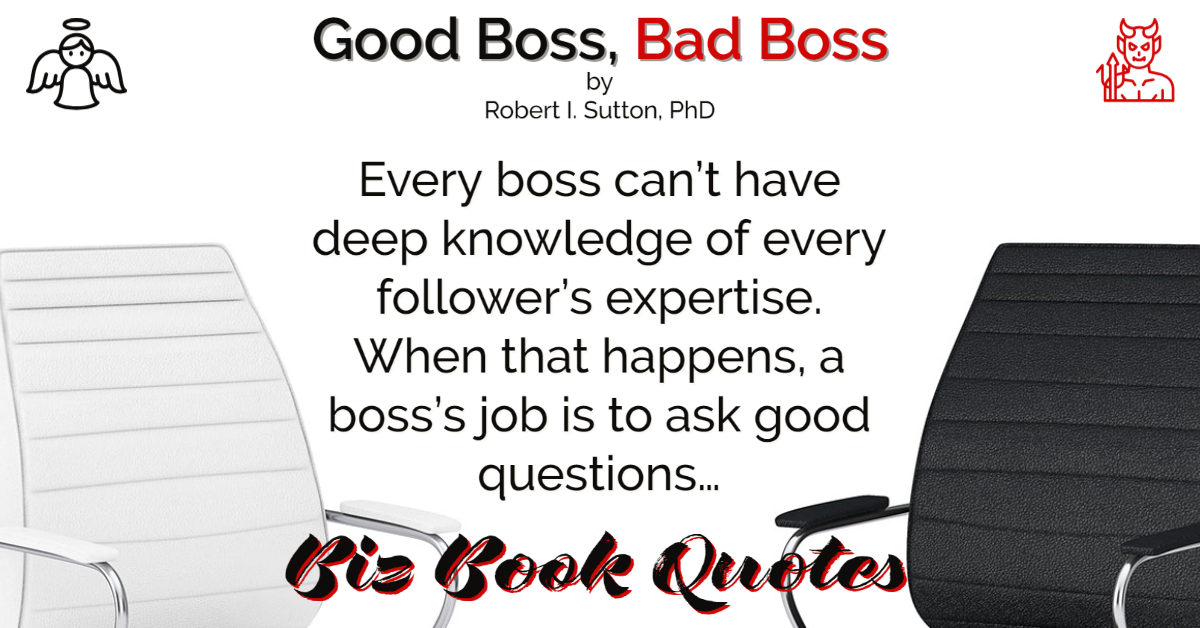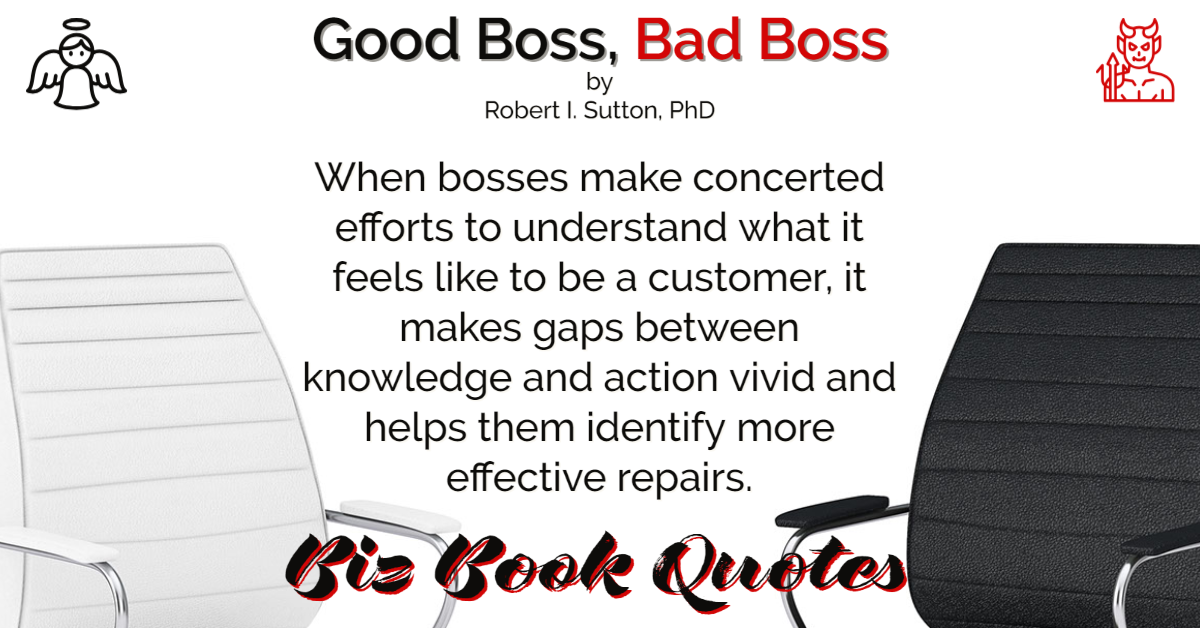 |
Every boss can’t have deep knowledge of every follower’s expertise. When that happens, a boss’s job is to ask good questions…
|
134 |
 |
When bosses make concerted efforts to understand what it feels like to be a customer, it makes gaps between knowledge and action vivid and helps them identify more effective repairs.
|
137 |
 |
The best bosses battle unnecessary intricacy, serving as simplicity police who relentlessly reduce the emotional and cognitive effort required for turning knowledge into action.
|
142 |
 |
…the best bosses and followers do what they propose.
|
151 |
 |
The best bosses let the workers do their work. They protect their people from red tape, meddlesome executives, nosy visitors, unnecessary meetings, and a host of other insults, intrusions and time wasters.
|
154 |
 |
…too many bosses… disrespect people’s time and dignity – especially self-absorbed bosses bent on self-glorification.
|
157 |
 |
…the best bosses keep hunting for little ways to use everyone’s time and energy more efficiently and respectfully.
|
163 |
 |
If you are a boss, protecting yourself from intrusions may be a lost cause… management work requires dozens – sometimes hundreds – of brief and fragmented tasks each day.
|
163 |
 |
…as a boss, the more trivial and unnecessary intrusions you can absorb, the more work your people will do and the less their mental health will suffer.
|
164 |
 |
Good bosses try to cooperate with superiors and do what is best for their organizations, but they realize that defiance can be required to protect their people and themselves…
|
167 |